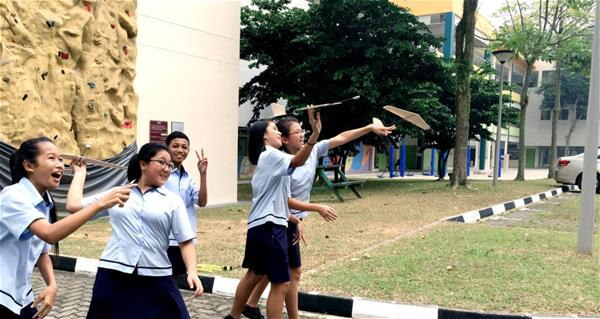About Transportation Applied Learning Programme (ALP)
In our interconnected world today, transportation is vital in the global supply chains and the economy by facilitating the movement of people and goods from one location to another via three primary modes: land, air and sea.
Our Transportation
Applied Learning Programme (ALP) provides opportunities for students to discover how different modes of transportation function, appreciate their infrastructure and operating systems, and explore the natural principles that govern them.
For example, students may learn Bernoulli's principle, which enables a helicopter to take off, hover and move in the air; how heavy cargo ships and aircraft carriers are designed for buoyancy; gain insight into how magnetic levitation trains levitate
and move safely. They will integrate and apply concepts from physics, engineering and mathematics to design vehicles.
In certain densely populated cities or transport hubs like Singapore, governments are constantly innovating and introducing
new ways to ensure smooth flow of air, land and sea traffic.
For instance, Singapore adopted contactless payment for greater efficiency and digital monitoring systems to schedule arrival timings, thus reducing average waiting time.
The local authorities may also welcome transport companies like Uber and Grab to provide carpooling services to ensure an optimal allocation of resources through a location-sharing system.
Through hands-on activities, this ALP will serve as a platform for students to design their own transport and build operating systems using programming to address real-world issues related to transportation.
 Students designing and constructing their own wooden planes
Students designing and constructing their own wooden planes
 Students sanding the edges of their model planes.
Students sanding the edges of their model planes.
 Flight test of their own incredible creations.
Flight test of their own incredible creations.
Back to Applied Learning Programme




.jpg)
d1-01.jpg)


